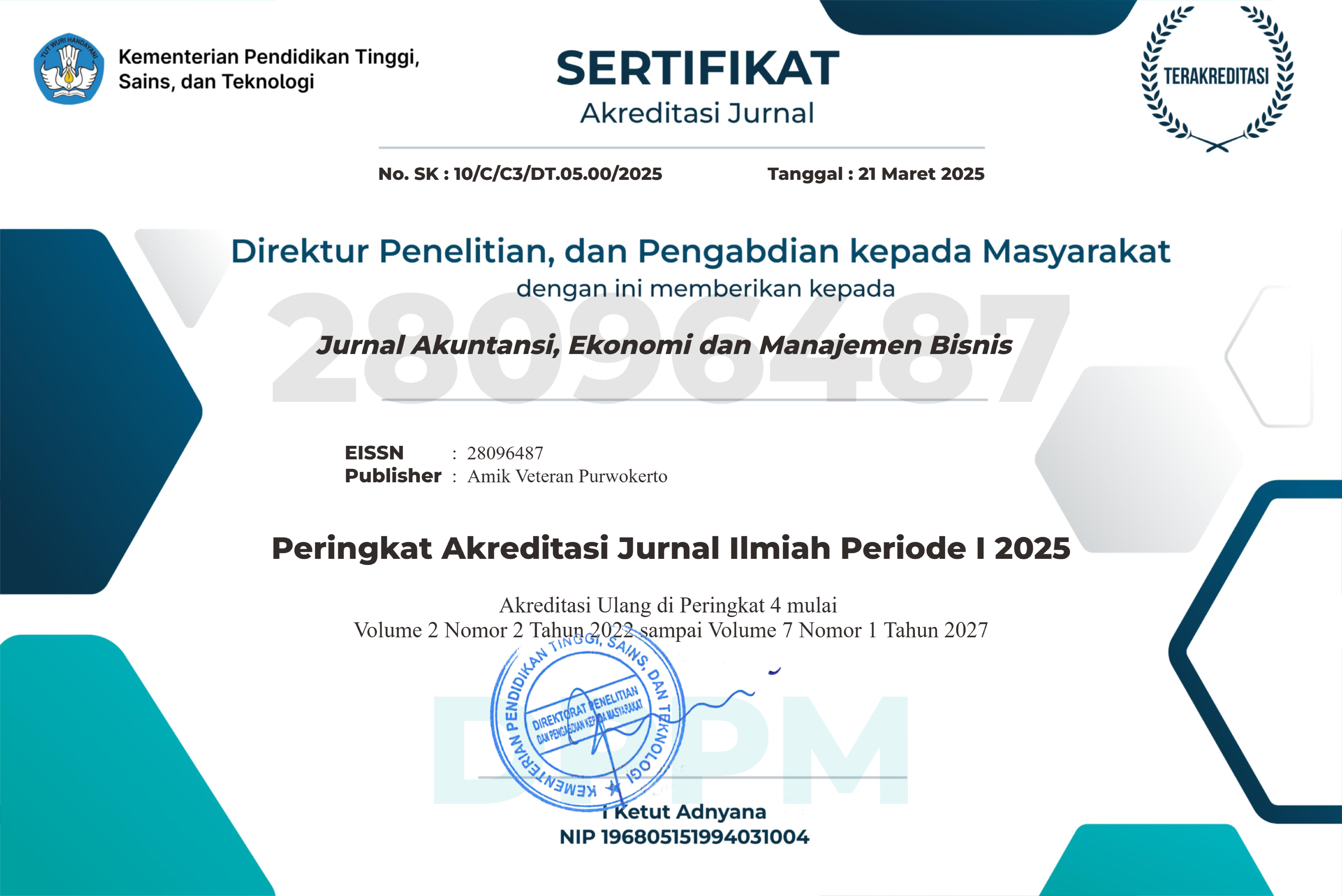PERANAN BANK SYARIAH INDONESIA (BSI) DALAM MENDUKUNG PENINGKATAN KESEJAHTERAAN USAHA KECIL DAN MENENGAH
DOI:
https://doi.org/10.55606/jaemb.v1i2.815Keywords:
Bank Syariah, Entrepreneur, Kesejahteraan, UKMAbstract
Small and Medium Enterprises (SMEs) are one of the main drivers of the development of the manufacturing industry. They are able to create jobs faster than others. The regional potential for Small and Medium Enterprises (SMEs) is very large. However, the lack of working capital makes most MSEs unable to continue their creative business. So it requires convenience in obtaining capital injections from various parties, especially Indonesian Islamic Banks. This study aims to analyze the effectiveness of the role of the Indonesian Islamic Bank (BSI) in supporting the growth of MSEs in Bulukumba. This study uses a qualitative method with a normative approach. The results of this study show that Bank Syariah Indonesia Tbk KCP Bulukumba plays a role in the development of Small and Medium Enterprises for the people of the city of Bulukumba. With the provision of capital, it can really help the community to develop their business and be able to reduce poverty as well as help increase income and open up opportunities for people who want to start a business. Although Islamic banks have various advantages and advantages in developing Small and Medium Enterprises, Islamic Banks have weaknesses and have obstacles in developing Small and Medium Enterprises such as capital problems, Human Resources, and government policies that are slow and detrimental to Islamic Banks.
References
Undang-Undang Republik Indonesia, “Undang-Undang Republik Indonesia Nomor 20 Tahun 2008,” no. 1, 2008.
K. Mudrajad, Ekonomika Industri Indonesia. Yogyakarta: Andi Offset, 2007.
Muhammad, Bank Syariah Analisis Kekuatan, Kelemahan, Peluang dan Ancaman. Ekonisia FE UII, 2006.
M. A. Nur, R. S. Muharrami, and M. R. Arifin, “Peranan Bank Wakaf Mikro dalam Pemberdayaan Usaha Kecil pada Lingkungan Pesantren,” J. Financ. Islam. Bank., vol. 2, no. 1, p. 25, Nov. 2019, doi: 10.22515/jfib.v2i1.1806.
Muhammad, Manajemen Bank Syariah. Yogyakarta: UPP STIM YKPN, 2011.
J. Jasri, S. Said, and A. K, “Analisi Faktor-Faktor yang Mempengaruhi Keputusan Etnis Tionghoa Menggunakan Jasa Bank Syariah,” IQTISHADIA J. Ekon. Perbank. Syariah, vol. 7, no. 1, pp. 1–16, Jul. 2020, doi: 10.19105/iqtishadia.v7i1.2915.
J. Jasri, “Pendapatan Margin Bayal- Murabahah terhadap Profitabilitas pada Bank Syariah,” J. Huk. Ekon. Syariah, vol. 1, no. 1, pp. 64–73, Dec. 2018, doi: 10.26618/j-hes.v1i1.1637.
R. Fatriani, “Bentuk-Bentuk Produk Bank Konvensional dan Bank Syariah di Indonesia,” Ensiklopedia J., vol. 1, no. 1, pp. 218–224, 2018.
Sugiyono, Metode Penelitian Kuantitatif, kualitatif, dan R&D, 26th ed. Bandung: Alfabeta, 2017.
Downloads
Published
How to Cite
Issue
Section
License
Copyright (c) 2021 Jurnal Akuntansi, Ekonomi dan Manajemen Bisnis

This work is licensed under a Creative Commons Attribution-ShareAlike 4.0 International License.








